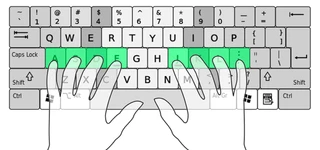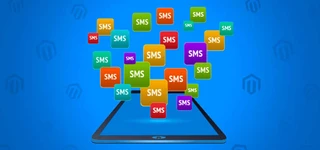Best Practices for HR Process Automation Across Industries

Your employees take care of your organization, while your HR team takes care of your employees.
For the smooth running of an organization, your HR team puts in a lot of effort, manual work, time, and other resources. What if you could take a little burden off their shoulders and automate certain HR processes to save time and effort?
Yes, with automation in HR, you can successfully ensure higher employee productivity and engagement.
Let’s understand what happens in HR automation, its benefits, and some of the best practices that you should follow.
What Is HR Automation?
HR automation is about using software solutions to streamline, digitize, and automate HR processes that are repetitive and consume a lot of time and manual effort. These HR processes include payroll calculations, employee onboarding, timekeeping, and other administrative tasks.
Automation of HR processes will help your HR team focus on strategies instead of repetitive tasks. HR automation minimizes human errors and ensures efficiency and security.
However, to facilitate HR automation in your organization, your employees should be ready to adapt to innovative technologies. Additionally, they might require certain training to learn the nuances of HR automation software. But eventually investing your time and effort will be worth it.
What’s Included in HR Process Automation?

Let’s understand what all HR tasks can be automated.
- Recruiting Process
You can automate your recruiting process by sending automated emails, interview scheduling, adding auto-reject questions, etc. This will help you in automating the initial screening of candidates, and you can further invest your time in candidate evaluation, selection and onboarding.
- Timesheet Keeping
Keeping attendance records is a tiresome task if done manually, However, you can use HR software for automatically tracking time and attendance for every employee accurately. You can calculate working days, holidays, off requests, work shifts, time offs, etc., with automated timesheets.
- Payroll
When you have all the information regarding employees’ working hours, and remuneration, you can process payroll easily. Payroll automation also supports auto debit of deductions, cost of additional benefits, auto-credit of bonuses, etc.
- Tax Filing
Using cloud-based HR automation, you can ensure timely tax calculation and filing to avoid any compliance issues. You can even customize it according to your specific state tax rules. This takes up the pressure off your HR team to do taxes manually.
- Recording Expenses
Apart from employee salaries, there are other office expenses that your HR team manages. These additional expenses are recorded, entered, and approved manually which becomes a long and tedious process for everyone. However, automating these processes will allow every employee or department to add their own expenses on the self-service portal, thus making approvals quicker.
- Records Management
Automating records management eliminates the burden of manually finding details of an employee in a pile of documents. It ensures transparency, accountability, and efficiency across departments. The entire information about an employee’s lifecycle can be fetched instantly through HR management software.
- Employee Onboarding & Offboarding
It includes HR tasks from bringing onboard an employee till the final offboarding process. There may be chances of biases or inefficiencies during these processes but automating these tasks will ensure transparency. Additionally, it will also save you from any potential legal issues in the future.
- Notifications & Reminders
With HR software, you can send automated reminders and notifications for special days or events. These include work anniversaries, employee performance reviews, holidays, and other key dates.
This will ensure that you don’t miss important dates, and you no longer need to chase people to complete their tasks or give them reminders. Along with improving communication, it will also ensure timely actions.
Suggested Read: Adapt HR Automation Today – Increase Productivity by 50%
Benefits of HR Process Automation

Here’re some of the advantages of HR process automation.
Cost-Effective: Human resource automation will help you to cut a lot in processing and inventory costs. It includes reducing paper costs, stationery costs, and time and resources spent on manual work.
Better Decision Making: HR automation allows you to pull out insights and make data-driven decisions. This data can be used to improve processes, rectify failures, and identify loopholes.
Ensure Transparency: HR automation enables you to achieve transparency in the processes by defining everyone’s roles and responsibilities clearly. It is especially beneficial for organizations working from multiple locations.
Enhanced Productivity: By automating tedious, manual tasks, the HR team can invest their time and effort in more strategic work. At the same time, employees will feel more engaged with training, feedback, rewards, and recognition.
Ensure Optimum Security: Automating HR processes will ensure that only eligible employees have access to any information. There will be less chances of information leak or theft.
Facilitate Collaboration & Communication: HR automation clearly defines roles and responsibilities for every employee and ensures accurate reporting. It helps with seamless collaboration and workflow.
Best Practices for HR Automation

We’ve listed some of the best practices for HR process automation across different industries.
Motivate Your Employees: The prime work of an HR team is to motivate company employees and prepare strategies to improve their performance. But most HR employees spend their maximum time on repetitive tasks like attendance tracking, manual payroll calculation, etc. that could have been automated. Allowing your HR team to work on strategic tasks will encourage them to give their best.
Simplify Workflows: One of the main reasons behind switching to HR automation is to simplify and define workflows in the organization. With the help of automation technologies, tasks like maintaining records of working days, holidays, and other HR requests are simplified and streamlined.
Focus on Employee Needs: Automation of HR processes can contribute to creating an employee-centric company culture. AI tools in HR automation software can help you in understanding employees’ needs by spotting their behavioral patterns. It will assist you in identifying issues that may create trouble eventually.
Ensures Consistency: Every employee has a unique work style, which must be aligned with your organizational goals. However, with HR automation, you can define work profiles, align the right candidate with every role and provide them with the required training and development sessions to grow.
Start Small: Adapting to modern technologies takes time, you can’t expect your HR team to understand and implement new automation processes in a single day. So, instead, try starting with small changes in the complete process. Start by taking a trial of this HR automation software and see how it turns out for your employees and organization.
Built a ‘Self-Help’ Attitude: To understand a new HR automation software, your employees might constantly contact the IT or HR department to ask several questions. In this case, providing a self-help option like a few basic tutorials or a handbook of certain FAQs would be of great help.
Remove Unnecessary Approvals: An employee has to go through several approval processes such as leave requests, travel requests, expense claims, etc. With HR automation, you can streamline the approval process and ensure faster resolution.
Create a Resilient Organization: Your industry is continuously evolving with the workplace becoming more open to adversity, continuous change, and disruption. HR teams must create an environment where employees get enough support and exposure to perform and meet the changing expectations. With HR automation software, you can ensure ongoing feedback and training to upskill your employees.
How to Manage Unique HR Process Automation Scenarios with HR Neeti?
Most of the HR automation software addresses the common 85% of issues, while the other 15% of issues remain untouched. HR Neeti offers creative and customized solutions to address unique HR scenarios of organizations.
The software focuses on the unique requirements of HR automation within your organization, so you don’t have to compromise with inefficient manual processes.
Let’s understand how HR Neeti can create the best HR automation environment for your organization.
- Proactive Approach: It ensures a proactive approach within your organization. Every process in the organization follows a flow namely, “Take action before and not after”. It is designed to boost the performance of your staff as they will be proactive enough to take necessary actions before things go wrong.
- Integrated & Comprehensive Solution: Offers a completely integrated HR system that enables timely management of all HR-related activities along with report management, dataflow management, and more.
- Transform HR Functions: Using a 100% integrated HR system, you can create a performance-based work culture, allow decision-making backed by data, enable timely management, and ensure accurate reporting.
- Automate Major Tasks: Automates all HR-related tasks including payroll, compensation, pay slip generation, auto-calculation of payable days, calculation of variable pay, increment/appraisal processing, and more.
- Holistic Experience: Offers a comprehensive system for time/attendance management, query management, asset management, payroll management, etc. to create a unique HR experience.
- Industry-Specific Solutions: HR Neeti solution ensures that you have access to customized modules to manage your diverse workforce as per your industry-specific needs.
- Solves HR Bottlenecks Across Industries: Provides unique HR features that match the needs of different industries like manufacturing, diagnostic centers, hospitality, manpower services, and more.
- Data-Driven Decision Making: HR Neeti solution assists CXOs and other key decision-makers in making data-driven strategies.
- Deployment of HR Strategy: Helps in aligning, planning, measuring, and assessing your workforce in a way to achieve about 40% cost reduction in workforce deployment.
- Management of Distributed Workforce: Helps you manage multiple businesses across different locations through a centralized platform.
- Follows PDCA Cycle: Follows the ‘Plan-Do-Check-Act’ process to ensure that all the activities related to HR remain on track and are up to the management’s expectations.
Suggested Read: What is HR Analytics: Definition, Types and Benefits
FAQs
- Can human resource management be automated?
Yes, human resource management can be automated using HR automation software. It can help you in automating time-consuming repetitive tasks to create an efficient and productive working environment.
- How do you automate HR onboarding process?
To automate HR onboarding process, you can take help of HRMS software that streamlines processes like document submission, approvals, creating new records, etc.
- What should I automate in HR?
You can automate every stage in an employee lifecycle from onboarding to offboarding, which includes payroll, time and attendance and other core HR tasks.
- Can HR be automated?
Yes, HR can be automated. Several time-consuming tasks like on-boarding, off-boarding, expense management, recruitment, and records management can be automated.
- How HR automation helps employees?
Automation of HR processes ensures better performance management, learning and development and self-service modules to help employees improve and perform up to their potential.
- Which HR processes can be automated?
HR processes like payroll management, tax filing, onboarding, offboarding, expense management, leave and attendance management can be automated.
Related Categories: HR Software | Payroll Management Software | Leave Management Software | Attendance Software
Isha’s writing journey started way back in 2018 when she graduated in the field of Journalism & Mass Communication. Since then, she has been writing for all digital and print marketing assets including blogs, editorial reviews, landing pages, emailers, and more. She has contributed her writings to genres... Read more




















